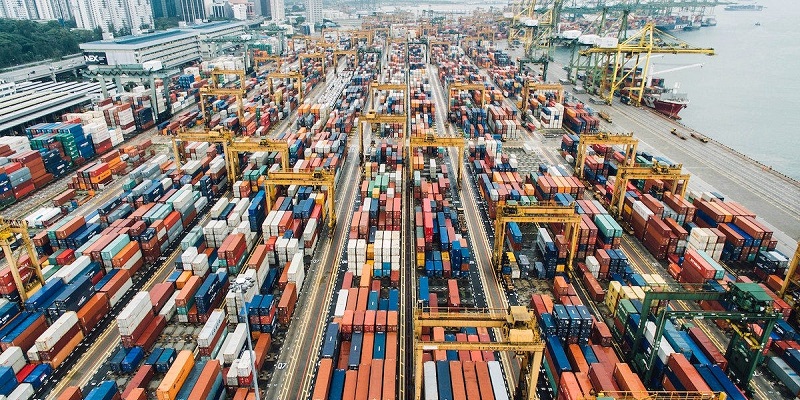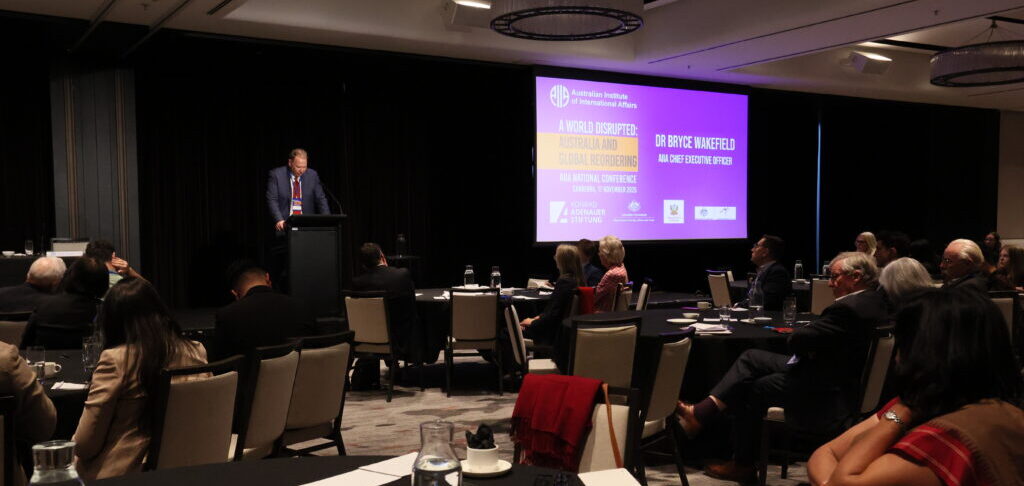Norms that have long contributed to Australia’s prosperity are increasingly in need of safeguarding from the rise of international populism. In light of this, it is time for introspection into our relationship with the US and how we should relate to the rest of the world.
Australia’s national interests are not served by blind subservience to US hegemony—it is met by proactively defending the liberal international norms that have existed since Bretton Woods. This distinction needs to become front and centre in our discussion on foreign policy.
The latest 2017 Foreign Policy White Paper may be in need of an update. Nonetheless, it acknowledges what remains true and in need of safeguarding–that our national interests are best nurtured through multilateralism and being upstanding global citizens.
Nonetheless, Australian foreign policy, in practice, often seems to undermine these principles in favour of unduly US engagement. As Allen Gyngell observed, successful foreign policy (within appropriate constraints) maximises the options that nation-states have in achieving their national interests.
It is time to recognise that, more than ever, unquestioned allegiance to any foreign power risks narrowing the scope of our options to improve the welfare of the Australian people. On this note, Prime Minister Anthony Albanese’s recent visit to Indonesia displays a glimmer of hope for multilateralism and a pivot away from great-power competition. However, it will take more than a “symbolic” visit to break old habits.
Rise of Populism and drifting interests
Changing circumstances require changing tactics. While Australia’s special relationship with the US may have served us well in the past, President Donald Trump’s “America First” agenda has forced us to consider the merits of our alliance.
In Darren Lim’s recent “Australia in the World” podcast episode, Columnist for “The Economist,” David Rennie describes the emergence of populist leaders among those disillusioned with immigration policies in western democracies. The implications of this are concerning.
Populist leaders overwhelmingly work from the same playbook—nationalism, isolationism, and skepticism of multilateralism and the liberal international order that brought so much prosperity worldwide. Notably, Donald Trump’s tariffs and the transactional approach to burden-sharing is undermining post-war liberal norms. If this is the new normal, Australia needs to be flexible in safeguarding prosperity–that is, defending the same norms and values that it has benefited from.
Cultural affinities and over-reliance on the US
The obstacle to pursuing our national interest lies in Australia’s passive posturing, and a tendency of viewing “power as belonging to others.” Australia needs to start treating its own foreign policy as independent from US interests.
We have our own cosmopolitan interests rooted in free trade and multilateralism which the US have demonstrated can be transitory. We also have an obligation to be on the right side of history, being role models on human rights issues to positively influence international norms and reposition ourselves as a virtuous country. Whether it is Australia’s sidelining of ASEAN in its minilateralism or climate change hypocrisy directed at the Pacific Islands,the proof is self-evident that there is room for improvement.
Strong cultural similarities and Anglo-Saxon linkages leave us susceptible to a false sense of attachment to the US. Allen Gyngell’s “Fear of Abandonment” identifies the transition from British colonial ties to the embrace of US hegemony as a path of least resistance– finding comfort in shared linguistic, political, and cultural similarities.
We need to avoid tunnel-visioned policies that risk further entrenching us within the anglosphere-bubble. It was not long ago that the French were sidelined in favour of AUKUS commitments that instead engaged with the more familiar anglosphere. As you would expect, this deeply undermined our relationship with the French who subsequently recalled their ambassador.
Of course, there is also an argument to be made about putting all your eggs in the same basket with our relationship with the US. President Trump’s “art of the deal” gives insight into his “winner-takes-all” mindset—a point that should be extrapolated to foreign policy. It should be a wake up call that Australia was not spared from Trump’s not-so-reciprocal tariffs. Australia needs to learn to assert itself and act with agency in navigating the current international climate of uncertainty.
Limitations in US retaliation
Fear of US backlash should not preclude Australia from asserting its own interests in security, multilateralism, and free trade. In light of diverging interests, Australia should not hesitate to give the US the same great-power treatment China receives—to “cooperate where we can and disagree where we must.”
As with any enduring social or business relationships, expectations need to be made clear, and this applies to our own national interests too. Do we want to be dragged into another war of the US’s making? Will we accept de-globalisation as a trade dependent country with a small market? Even if we were to expect US retaliation, it would be incredibly limited as Australia is of immense geopolitical importance to the US in its broader goal to balance China. As the most reliable partner in the region, US influence in the Pacific is greatly undermined if its relationship with Australia is troubled.
Optimising diplomatic capabilities to move beyond US interests
As it stands, Australia has yet to place diplomacy on an equal footing with other tools of statecraft, like defence and intelligence. The Lowy Institute’s Diplomacy Index reveals that Australia’s diplomacy packs below its weight—ranking second last among G20 countries.
If nothing changes, we should expect more of the same faux pas seen in AUKUS or strained relationships with China and the Pacific islands. Successive governments have erroneously ramped up defensive spending at the expense of diplomacy funding. Cuts to the diplomatic service in favour of military spending undermine the post-war liberal ethos of harnessing multilateralism and soft power projection to achieve state objectives.
It should not be seen as desirable to live in a world where fist fights occur first before they are resolved by effective communication, empathy, and mutual understanding. Vietnam is a case study of a country with less resources but considerable diplomatic dexterity in playing off the US and China. Vietnam’s “bamboo diplomacy” avoids formal alliances to preserve autonomy and flexibility in dealing with a broad range of countries.
Hanoi benefits from being able to access both Chinese and US markets while pragmatically invoking ASEAN multilateralism against Chinese aggression. Meanwhile, its status as a developing country means it has less money to spend on its military—but its highly efficient diplomatic capabilities more than make up for it.
Australia can learn something here. If we are serious about optimising diplomatic capabilities,the US alliance as it is, needs to be reconsidered. We need to assert Australian diplomacy beyond US interests.
Kenny Pham is a fifth year International Relations and Commerce Student at the Australian National University. He holds a keen interest in the intersection between Politics and Economics. Kenny previously served as the Public Engagement Intern at the Australian Insitute of International Affairs.
This article is published under a Creative Commons License and may be republished with attribution.




